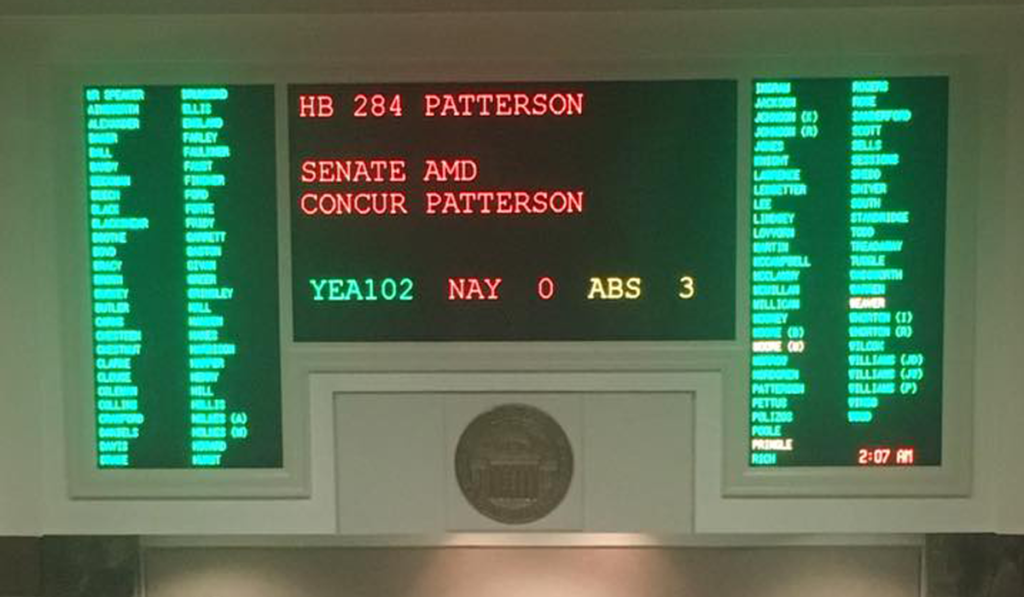Daniel Sutter: Mandates and the cost of kindness

Last spring Alabama’s legislature mandated coverage of autism therapy by health insurance plans. Such mandates provide benefits to people without spending our tax dollars, but threaten the viability of health insurance. The main issue for autism coverage was Applied Behavioral Analysis (ABA), an intensive therapy program with demonstrated benefits for patients. Helping persons with disabilities lead fulfilling lives is a worthwhile goal. We should celebrate a therapy helping persons with autism. But the therapy is expensive. Few families can afford the $15,000 (or more) a year cost out-of-pocket. Mandating insurance coverage spreads the cost across all patients. We decided to help autistic children receive ABA regardless of their parents’ incomes. Although some business and insurance groups opposed the mandate, the legislature still decided to help. But similar issues are sure to arise in the years to come. I think that state lawmakers should have provided this benefit out of tax dollars. Mandates contribute to the slow death of health insurance, which may lead to more extensive government involvement with health care in the future. Insurance mandates allow lawmakers to provide benefits to people without spending tax dollars. Spending state funds, by contrast, would require either increasing taxes or cutting other spending. An insurance mandate spreads out the cost; coverage might only cost a few more dollars per policy per year. Furthermore, the link between the mandate and cost increases for policyholders will be indirect. This process gets repeated over and over. States have enacted around 2,000 mandates for 70 different services over the past thirty years, about 40 per state. In each case, the coverage likely represents a “good” cause and benefits some families, like with autism therapy. The accumulation of mandates forces employers to reduce salaries or increase deductibles and co-pays. Many employees never use most of the mandated coverage. Eventually employers stop providing health insurance as a benefit, increasing the ranks of the uninsured and the constituency for further government intervention. When we decide to help autistic children receive ABA, we are spending somebody’s money. Ultimately government money is our money. Taxes are how we should pay for things that we direct government to do. Insurance mandates act like a tax, but the hidden element leads to poor decisions. Suppose that autism therapy will cost $30 million a year. If lawmakers raised taxes, citizens would see the full cost. The weak link between mandates and higher costs for policyholders makes mandates less visible; perhaps they have a perceived impact equal to $10 million in taxes. Suppose we decide that helping autistic children is worth $20 million per year. If we think that the cost is $10 million because of the mandates, this looks like a good deal. But in reality the benefits are less than the cost. Another option which might be even better is philanthropy to assist families unable to pay the full price. Charities, I think, do a much better job than government verifying need and controlling cost. Insurance creates a third party payment problem: neither the patient nor provider pays the bills, and so neither worries about cost. We can always spend more on any service. For example, Board Certified Behavioral Analysts (most expensive), Board Certified Assistant Behavioral Analysts, or registered behavioral technicians (least expensive) can provide ABA. If we ignore the cost, making greater use of Board Certified Behavioral Analysts is always attractive. We could also extend the therapy and provide it to more children. Mandates make insurance companies even less likely to contain costs since employers cannot drop mandated coverage due to expense. Government also seems unlikely to wisely control costs. Americans believe strongly in the equality of opportunity. We are willing to help children to make this a reality, by paying for things like autism therapy. When we choose to help, we should be willing to bear the cost. Insurance mandates only appear to lower the cost, and contribute to the slow implosion of the health insurance market. ••• Daniel Sutter is the Charles G. Koch Professor of Economics with the Manuel H. Johnson Center for Political Economy at Troy University and host of Econversations on TrojanVision. The opinions expressed in this column are the author’s and do not necessarily reflect the views of Troy University.
Bill to mandate insurance coverage for autism therapy heads to Kay Ivey’s desk

While most Alabamians were sound asleep, state lawmakers were hard at work trying to get legislation across the finish line early Thursday morning. Making it past its final hurdle, HB284, a bill mandating insurance coverage for autism therapy, was approved by Alabama House of Representatives at 2:07 a.m. when members concurred 102-0 with an amended Senate version. The final version of the bill includes amendments from its original version such as making the mandate only apply to patients up to 18 years of age, applying only to companies with at least 51 employees, and delaying the mandate altogether on public plans until Dec. 31, 2018. “I am so proud that our State has done the right thing!” the bill’s sponsor Meridianville-Republican Rep. Jim Patterson said in an early Thursday morning Facebook post. Patterson is referring to his colleagues decision to support the bill, which faced a tenuous road to final passage. Last month the House unanimously passed the bill, 100-0, but the legislation found itself in jeopardy when it reached the Senate due to concerns over costs, as it requires providers to cover an intensive therapy called Applied Behavioral Analysis (ABA) therapy. However, following an outpouring of public support, the Senate ultimately approved the measure, 33 to 1, Tuesday with a few amendments to the House bill, which is what triggered the late-night House concurrence vote. “I voted yes on behalf of my district. I hear you loud and clear,” Huntsville-Republican Paul Sanford posted on Facebook after the vote. The bill now moves to the desk of Gov. Kay Ivey. According Patterson, Ivey will sign the bill during a 10 a.m. Friday ceremony.
Alabama Senate approves autism insurance mandate

The Alabama Senate voted 33 to 1 Tuesday night mandating insurance coverage for autism therapy. The bill, which has previously stalled in the Senate due to concerns over costs, requires providers to cover an intensive therapy called Applied Behavioral Analysis (ABA) therapy. The bill will now go back to the House where lawmakers must decide whether or not they want to accept the changes the Senate made to it, such as making the mandate only apply to patients up to 18 years of age, applying only to companies with at least 51 employees, and delaying the mandate altogether on public plans until Dec. 31, 2018. Last month, the House unanimously passed the bill, 100-0. Despite not wanting any changes, the bill’s sponsor Meridianville-Republican Rep. Jim Patterson has said he’ll ask his colleagues to approve the changes. Parents of children who have had the therapy told the House Insurance Committee that it has been “life-changing” for their children. The therapy is also expensive, costing tens of thousands of dollars each year. “This whole experience has been a life changing thing for me. I have learn[ed] so many things, and met some wonderful people,” wrote Meridianville resident Summer Bryant Stewart on Rep. Patterson’s Facebook wall Tuesday night after the bill’s Senate passage. “The autism community is the toughest group of people I have ever had the pleasure of meeting. The love and support from my family and friends kept me going through this fight. I am so thankful for Jim Patterson and the courageous way he stood up for my family and the rest of the autism community. “ Upon passage, the bill’s Senate sponsor Auburn-Republican Sen. Tom Whatley, took to Facebook to celebrate:


